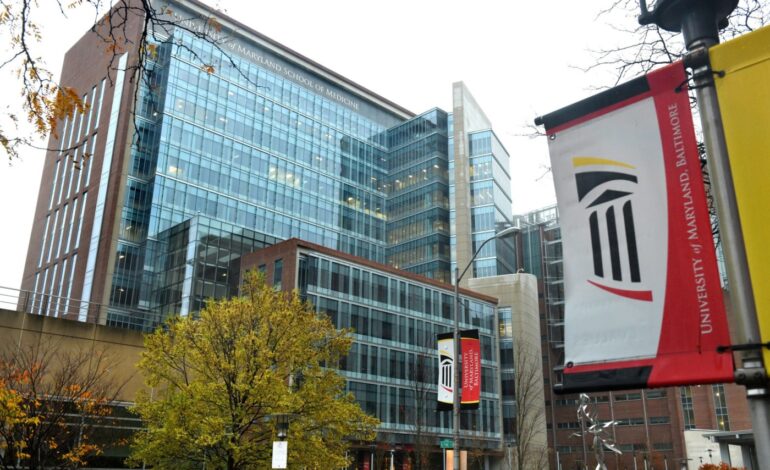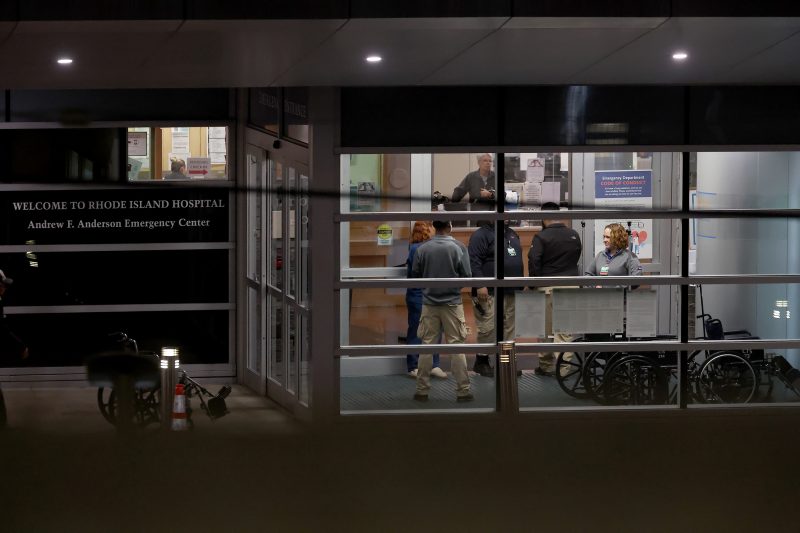Maryland Universities Face Funding Crisis as Federal Grants Decline

Federal grant funding for Maryland universities has experienced a significant decline, leading to a challenging environment for researchers and institutions in the state. A report from the Center for American Progress reveals that Maryland universities lost approximately $119 million in federal grant funding this year. This funding reduction has placed researchers in a precarious situation, as many were relying on federal dollars for ongoing projects.
The University System of Maryland has emphasized the need for a broader funding base. According to Patrick O’Shea, vice president for research at the university system, there has been an over-reliance on federal funding. “Our failure was a lack of diversity in funding,” O’Shea stated, highlighting the urgent need for institutions to diversify their revenue streams in light of these recent changes.
Many research projects across the state are at risk. O’Shea noted that Maryland institutions typically maintain around 3,000 separate federally funded research projects. Each year, about one-third of these projects come to an end, prompting researchers to seek new grants. With the recent cuts, the path to securing these funds has become more uncertain.
On October 10, 2023, researchers from the University of Maryland, College Park, convened a virtual town hall to discuss their concerns regarding funding cuts and their implications for ongoing work. One participant, Marc Pound, a research scientist in the Astronomy Department, expressed his anxiety over potential funding losses. “I don’t see how I can keep working at the university if my grant is clawed back,” he said, emphasizing the precarious nature of grant-dependent positions.
The funding crisis has also sparked worries about job security among non-tenured faculty. Pound explained that while he has a mix of state support and federal grants, his funding from NASA and the National Science Foundation is now under threat. Earlier this year, NASA requested that he take his funding in two separate payments, a request he did not initially find alarming. However, in late summer, he was informed that the second payment might not be guaranteed.
Colleagues at the town hall voiced concerns about their safety and job security in a politically charged environment. Many professors chose to remain anonymous due to perceived threats, asking for assurances from the administration regarding their protection, including calls for active shooter drills and measures to keep personal information confidential.
In response to the challenges faced by faculty, Karin Rosemblatt, a professor of history and president of the United Academics of Maryland-UMD, organized the virtual meeting after their requests for a forum with the administration were overlooked. “We see here how people who don’t have the protection of tenure are not going to be able to continue their research for politically motivated reasons,” Rosemblatt stated. She characterized the situation as an attack on academic freedoms.
Other institutions in Maryland are also feeling the effects of funding cuts. Johns Hopkins University, recognized as the first research institution in the United States, reported a loss of $800 million in funding from the U.S. Agency for International Development in March. In response, the university has developed resources to assist affected faculty and researchers, including pivot grants of up to $150,000 for those who led research on terminated federal awards. Additionally, they offer bridge grants of up to $100,000 to support faculty awaiting delayed federal funding.
At Morgan State University in Baltimore, the impact has also been notable, with 22 grants rescinded, totaling $13.5 million. According to spokesman Dell Jackson, most of the funding had already been allocated in previous years, resulting in a loss of $3.6 million in future payments. Despite this, Jackson expressed optimism, stating, “We have not been as negatively impacted as some of our sister institutions.”
O’Shea remains hopeful for the future of Maryland’s universities amidst the turmoil. “We are working hard to help our people stabilize, pivot, and grow,” he said. Despite the challenges, he believes that these institutions have the resilience to adapt. “Universities have been around longer than most countries or governments,” O’Shea asserted. “We will survive.”






